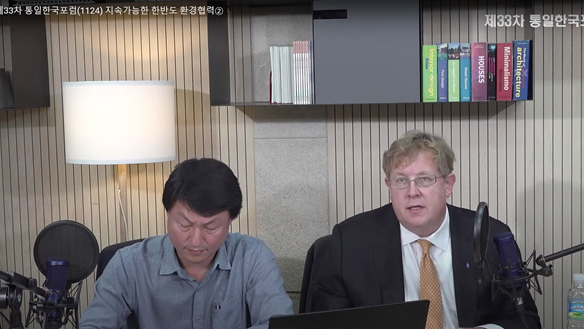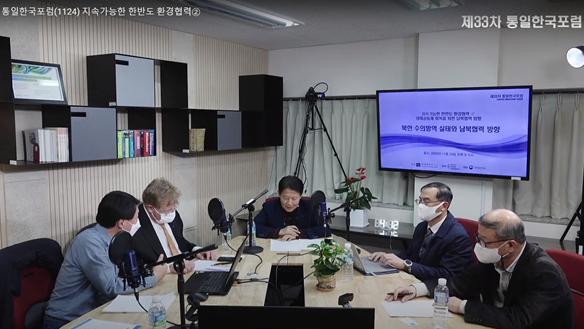Online Forum
North Korea’s Disease Defense and Inter-Korean Cooperation

As the first presenter, Dr. Bernhard Seliger spoke about North Korea’s policy against natural disasters and the impact of the ongoing African swine fever and COVID-19. He claimed that these infectious diseases negatively impacted North Korea since it had also suffered from severe natural disasters this year. In response, North Korea has chosen an isolation policy approach to prevent domestic inflow which, however, leads to drastic economic disadvantages. Dr. Seliger stated that the international community could use the current situation as an opportunity to cooperate with North Korea in terms of communication and international exchange. Also, he asserted to pursue cooperation policies to strengthen North Korea’s health system.

The following speech was delivered by Mr. Yong Kwan Oh, director of South-North Korea Exchange and Cooperation Support Association. He argued to “create a quarantine base to strategically establish inter-Korean cooperation and detailed policies that integrate the concept of agriculture, farmers and rural areas.” As times have changed, future-oriented strategies should be built using information technology.
Lastly, Choong-hee Cho, director of the Good Farmers Institute, proposed to solve both malnutrition and cooperation problems through touching on the livestock production in North Korea. Since livestock production takes a large proportion of North Korea’s economy, the African swine fever had a negative impact on North Koreans and their nutrition level. He argued that resolving livestock problems will not only take care of malnutrition in North Korea but also enable active communication between the North and South. He further agreed with Dr. Seliger on building trust between the North and South to create a foundation for greater cooperation in the future. Finally, he emphasized the importance of forums to share and publicize understandings of North Korea and Inter-Korean cooperation.

After the share of thoughts, the speakers, including Professor Hee Jong Woo from Seoul National University, held a Q&A session and answered questions from the live online audience. Responding to the questions, Dr. Seliger discussed the importance of small-scale projects and the impact of infectious disease on North Koreans (e.g. lack of food, basic necessities, fertilizer and harvests). Emphasizing to support aid under an international framework to lower North Korea’s hostility, the forum came to an end.
You can find the full video here (in Korean).
